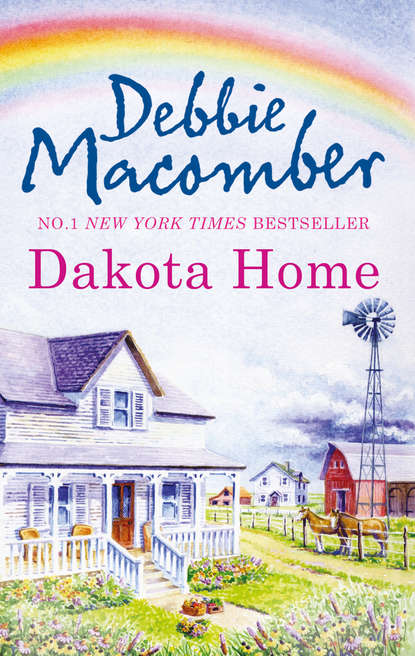По всем вопросам обращайтесь на: info@litportal.ru
(©) 2003-2024.
✖
Dakota Home
Автор
Год написания книги
2019
Настройки чтения
Размер шрифта
Высота строк
Поля
My parents were both born and raised in the Dakotas, in towns much like this. As a child, I can remember making the long journey from Washington State in order to visit relatives, driving through the Badlands and stopping at Mount Rushmore to view the four presidents. I have fleeting memories of my mother’s parents, who died before I was six years old. Both of my grandfathers were farmers. I wrote the Dakota trilogy near the end of my parents’ lives. It was a tribute to them and to my German-speaking Russian grandparents, who arrived as immigrants around the turn of the twentieth century. I wanted to learn more about them and about the land they settled. What I discovered is that the people living and working the land now, a century later, aren’t so different from those pioneers. They’re hardworking, traditional and proud. A lot like my grandparents and parents. A lot like me.
PS I love to hear from readers! You can reach me through my website, www.debbiemacomber.com. Or write to me at PO Box 1458, Port Orchard, WA 98366, USA.
Dakota Home
Debbie Macomber
www.mirabooks.co.uk (http://www.mirabooks.co.uk)
Anna and Anton Adler
and
Helen and Florian Zimmerman
For their courage, dedication and love
Prologue
Four years earlier
Jeb McKenna recognized death, sensed the cold, dark shadow of its approach as he labored for each breath. The will to live was strong, stronger than he could have imagined. Waves of agony assaulted him, draining what little energy he had left. In an effort to conserve his strength, he gritted his teeth and swallowed the groans.
Trapped as he was, he twisted his face toward the sun, seeking its warmth. Stretching toward the light. He refused to stare into the advancing darkness that waited to claim him. But the more he struggled, the weaker he grew. Each attempt to free himself brought unrelenting pain. Barely conscious now, he accepted the futility of his effort and went still as the darkness crept toward him inch by inch.
“Jeb! Dear God in heaven. Hold on, hold on. I’ll get help….”
Jeb tried to open his eyes but had become too weak. An eternity passed before he felt his head gently lifted and cradled in caring arms.
“Help is on the way… they’ll be here soon. Soon.”
It was Dennis, he realized, Dennis in a panic, his voice shaking and raw. Jeb couldn’t see what his friend was doing, but felt the tightening pressure of a tourniquet as Dennis secured it around his thigh.
Jeb wanted to thank him, but it was too late and he knew it, even if his friend didn’t. He was grateful to Dennis; he didn’t want to die, not alone in the middle of a wheat field, lying in his own blood, feeling the land slowly, surely swallow him.
He didn’t want his father—or worse, his sister—to discover his body. At least now they would be spared that agony.
So many regrets, so many mistakes.
“Hold on,” Dennis said, “hold on.”
Jeb heard a piercing sound—a siren—followed by raised voices and shouted orders. Then the pain returned, pain so agonizing that he sought death, begged it to take him. Anything to end this inhuman suffering.
The next thing he heard was his sister’s sobbing. It was the first time he could remember hearing Sarah cry. She’d always been the strong one in the family. Jeb and his father had come to rely on her, especially since their mother’s death.
Jeb chanced opening his eyes and found himself in a darkened room. Sunlight peeked through the closed blinds in narrow slats. He noticed a powerful antiseptic smell, and when he moved his arm slightly, felt the tug of a line attached to his hand. An IV. He was obviously in the hospital, probably in Grand Forks.
Rolling his head to one side, he discovered Sarah sitting there, her face streaked with tears.
“I’m sorry, I’m so sorry,” she whispered when she saw that he was awake.
“I’m alive.” He had to hear himself say the words in order to know it was true.
“Son.”
His father stood on the other side of the bed. “We thought we’d lost you.” Joshua McKenna wasn’t an emotional man, but his eyes revealed anguish. A heartbeat later, he broke eye contact.
Jeb frowned, not understanding. He’d lived, so the worst was over; this wasn’t a time for tears or grief.
“What day is it?” Jeb asked, and the words scraped his dry throat. As if reading his thoughts, his sister offered him a sip of water, and he greedily took in the liquid until he’d had his fill.
His father looked at his watch. “Thursday afternoon. Four o’clock.”
Jeb had lost all perspective on time. The accident had happened earlier in the week. Must’ve been Monday, when Dennis was scheduled to deliver diesel for the farm equipment. Yes, because he remembered Dennis talking to him, helping him.
“You were unconscious for two days,” his sister explained.
“Two days,” he repeated. It didn’t seem possible.
“You’d lost a lot of blood,” Joshua added, his voice trembling.
Jeb glanced at Sarah and then his father. Why were they so upset? He was alive and damn glad of it.
“Tell us what happened?” Sarah asked softly. She held his hand between her own.
“The tractor stalled and I…” He hesitated when an awkward lump blocked his throat.
“You climbed down to check the engine?”
Jeb nodded. “I’d just started to look when the tractor lurched forward.” He couldn’t finish, couldn’t make himself relive the nightmare—yet he knew he could never escape it.
Luckily his reflexes had been fast enough for him to avoid getting run over, but he hadn’t been able to leap far enough to miss the sharp, churning blades of the field cultivator. They’d caught his leg, chewing away at flesh and sinew, grinding into bone. Then, without explanation, the tractor had stalled again, trapping his leg, holding him prisoner as he watched his blood fertilize the rich soil, darkening it to a deeper shade.
“Go on,” his father urged.
He tried, but no words came.
“No,” Sarah cried. “No more. It isn’t important. Jeb’s alive. That’s all that matters.”
The door opened and Dennis Urlacher peered inside.
“He’s awake,” Sarah announced, and Dennis walked slowly into the room.
He stood next to Sarah, his face tight with concern. “Good to have you back in the land of the living.”
Jeb swallowed hard, realizing that if Dennis hadn’t arrived when he did, he’d never have survived. “I owe you my life.”
Dennis was uncomfortable with attention, and rather than comment, he simply nodded. “I’m sorry about—”











